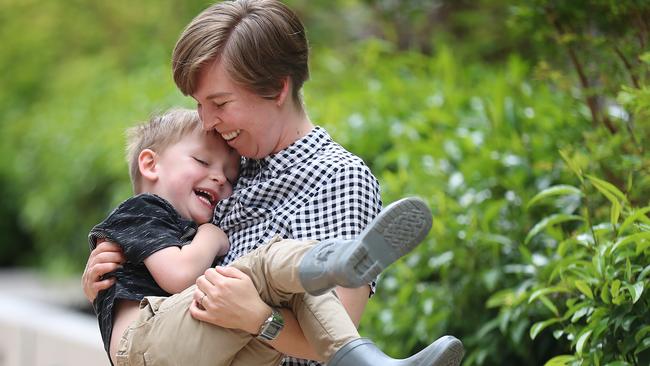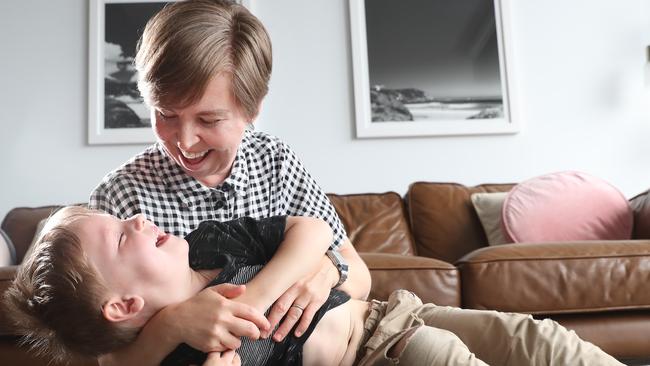Antenatal anxiety changes placenta gene expression
BABIES born to mothers who have anxiety during pregnancy may soon be recommended intensive mother-baby bonding programs upon birth, after researchers found there were stress-related genetic differences in their placentas.

VIC News
Don't miss out on the headlines from VIC News. Followed categories will be added to My News.
BABIES born to mothers who have anxiety during pregnancy may soon be recommended intensive mother-baby bonding programs upon birth, after Melbourne researchers found there were stress-related genetic differences in their placentas.
The Royal Women’s Hospital research findings could also pave the way for an antenatal mental health diagnosis to be a key factor in the type of labour recommended, as scientists continue working to uncover the effects of “passing on” stress hormones.
MOTHER URGES: SEEK HELP EARLY FOR DEPRESSION DURING PREGNANCY
CLINIC HELPS MELBOURNE MUMS WITH CROHN’S DISEASE
A pilot study analysed placenta samples from 24 women, half who had a known anxiety disorder, and looked at almost 40 genes related to the stress hormone cortisol.
While the womb is thought to offer some protection from a mother’s mental health, previous studies have shown that excessive amounts of stress hormones in the womb can program the foetus for disease and mental health issues later in life.
Lead researcher and obstetrician, Dr Penny Sheehan said one of their strongest findings was that women with anxiety had a decrease in the PER1 gene, which helps regulate the body clock.
They also found that gene expression in the placenta was different depending on whether it was a labour or caesarean delivery.
PRE-PREGNANCY DIET AFFECTS DAUGHTER’S OVARIES
DONOR’S SPECIAL ANTIBODY HELPS PREGNANT WOMEN

Dr Sheehan said this suggested that women with antenatal anxiety could benefit from specialist care during and after pregnancy, to give their babies the best start to life.
“It’s too early to say whether caesarean or labour is better, but the fact that were so many different genes affected when a baby was exposed to labour, suggests that perhaps these babies aren’t as protected from the mother’s anxiety as we thought,” Dr Sheehan said.
“We know that what makes babies feel most secure is good bonding with the mother, so in the future you can imagine interventions like this for babies born to women with anxiety.”
A surprise pregnancy and unrelenting morning sickness were the risk factors Bree Dunbar believes help contribute to the serious anxiety and depression during pregnancy.
By 14 weeks, she sought help at The Women’s Centre for Women’s Mental Health.
Ms Dunbar, now 37, said this support had set her up to now thrive as mum to four-year-old Ari.
“I truly believed that I would never be happy again and I would resent this baby that had caused me nine months of hell,” she said. “But help is out there. I’m living proof you can recover.”
For mental health support contact the Perinatal Anxiety & Depression Australia National Helpline on 1300 726 306


